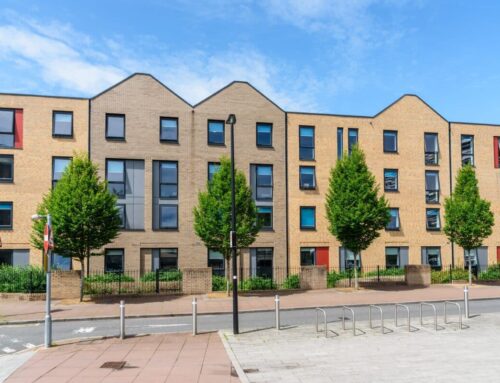Darren Bagnall from Block in a Box, looks at the various changes aimed at bringing fairness and transparency to the leasehold system.
Striking a Balance in Valuation Methods
The Leasehold and Freehold Reform Bill has introduced several changes aimed at bringing fairness and transparency to the leasehold system. One significant amendment involves the Standard Valuation Method and the regulation of market rates in lease extension calculations. This change, which gives the government the authority to set rates rather than leaving them open for negotiation between professionals, has both positive and negative implications for leaseholders.
Understanding the Deferment Rate
One crucial aspect of this change is the Deferment Rate, a rate used in calculating compensation for freeholders when a lease is extended. The concept revolves around compensating freeholders for the reversion of the property when the lease ends. The higher the Deferment Rate, the lower the compensation leaseholders need to pay to the freeholder.
Historically, the Deferment Rate has been set at 5% since the Sportelli tribunal decision in 2007. This rate is widely accepted and used in lease extension calculations for flats. The government’s involvement in setting this rate is aimed at streamlining the process and reducing negotiation time between professionals.
Potential Benefits
At first glance, the government setting rates appears advantageous for everyone involved in the lease extension process. The streamlined approach could save time and reduce costs associated with lengthy negotiations. Moreover, if the government sets rates that favour leaseholders compared to rates commonly agreed upon by valuers, it could result in financial benefits for leaseholders.
For instance, if the Deferment Rate were to be increased from 5% to 6%, the cost of extending a lease on a £200,000 flat with 80 years remaining could significantly decrease, providing financial relief for leaseholders.
Potential Drawbacks
Conversely, if the government sets rates lower than those traditionally agreed upon by professionals, it could disadvantage leaseholders. The recent argument by freeholders to reduce the Deferment Rate due to lower interest rates raises concerns among leaseholders, especially those with longer leases and minimal ground rents.
The Labour Party has expressed concerns about the potential negative impact on leaseholders and attempted to introduce a clause requiring the government to set rates at a level not punitive to leaseholders. However, these attempts were voted down by the Conservative party during the legislative process.
Conclusion
While the Standard Valuation Method and the government’s role in setting rates aim to simplify the lease extension process, the potential impact on leaseholders remains a topic of debate. Striking a balance between fair compensation for freeholders and reasonable costs for leaseholders is crucial. As the Leasehold and Freehold Reform Bill progresses, it is essential to monitor how the government navigates this aspect to ensure a fair and equitable outcome for all parties involved in the leasehold system.
At Block in a Box, we have partnered with EV Specialists, EV Connected by Future Group for all of your EV Charger needs. To obtain a quote, simply complete the form on our website, call our team on 0333 0154 145 or email info@blockinabox.co.uk and we will be in touch







Leave A Comment